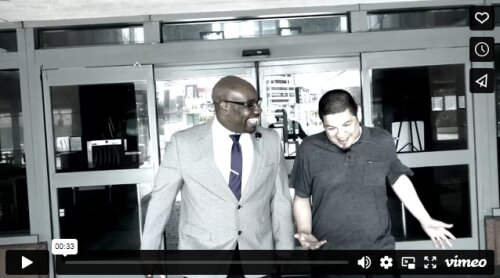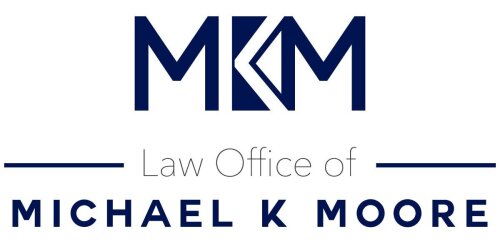Best Bankruptcy & Debt Lawyers in California
Share your needs with us, get contacted by law firms.
Free. Takes 2 min.
Or refine your search by selecting a city:
List of the best lawyers in California, United States
United States Bankruptcy & Debt Legal Articles
Browse our 2 legal articles about Bankruptcy & Debt in United States written by expert lawyers.
- Filing Chapter 7 in 2026 United States: New Income Limits
- Chapter 7 gives a near-total discharge of most unsecured debt, but you must pass a "means test" that compares your household income to your state's median income for your family size in 2026. The U.S. Trustee Program updates the state median income numbers at least once a year; you qualify... Read more →
- Debt Collectors in the US: Stop Harassment and Verify Debt
- You have strong federal rights under the Fair Debt Collection Practices Act (FDCPA) and CFPB Regulation F. Collectors cannot harass you, must send a validation notice, and must stop collecting until they verify if you dispute in writing within 30 days. Tell collectors to stop contacting you, then follow up... Read more →
About Bankruptcy & Debt Law in California, United States
Bankruptcy and debt law in California governs how individuals and businesses address situations where they are unable to repay their debts. California follows federal bankruptcy laws, primarily set out in the U.S. Bankruptcy Code, but also has unique exemptions and procedures under state law. Bankruptcy is a legal process that can offer debt relief or a fresh start for those overwhelmed by financial challenges. Consumers may deal with issues like credit card debt, medical bills, foreclosure, and creditor harassment. California's laws provide specific protections related to property, wage garnishment, and the rights of creditors and debtors.
Why You May Need a Lawyer
Legal issues around bankruptcy and debt can be complex, and the consequences of missteps are often serious. You may need a lawyer if you are experiencing any of the following situations:
- You are unable to pay your bills and are being contacted by debt collectors
- Your wages are or may be garnished
- You face foreclosure on your home or repossession of assets
- You want to stop creditor harassment and explore your options for debt relief
- You own significant assets and are unsure what will be protected if you file bankruptcy
- You own a business and face insolvency
- You need help negotiating with creditors to settle debt or restructure payments
- You wish to challenge a debt or dispute the amount owed
- You are considering different types of bankruptcy, such as Chapter 7, Chapter 13, or Chapter 11
- You have been sued over a debt
A knowledgeable attorney can assess your finances, explain your rights, help you choose the best solution, and represent you in legal proceedings.
Local Laws Overview
California's bankruptcy and debt laws work in conjunction with the federal bankruptcy system but offer important state-specific rules.
- Types of Bankruptcy: Most individuals file Chapter 7 (liquidation) or Chapter 13 (reorganization). Businesses may also consider Chapter 11.
- State Exemptions: California allows filers to choose between two sets of state exemption systems. These laws determine what property you can keep when you file for bankruptcy, such as your home, vehicle, retirement accounts, and personal belongings.
- Community Property: California is a community property state. If you are married, your spouse’s assets and debts may be affected, depending on whether you file individually or jointly.
- Debt Collection Protections: California regulates how debt collectors may contact you and provides legal remedies for harassment or unfair practices.
- Foreclosure Procedures: The state’s nonjudicial foreclosure process is commonly used. Specific legal rights exist for homeowners in default, including requirements for lender notifications and options for loan modification.
- Wage Garnishment Laws: California limits how much of your wages a creditor can garnish, generally capping it at the lesser of 25 percent of disposable earnings or the amount exceeding 40 times the state minimum wage per week.
- Recent Legislation: California updates its debt and bankruptcy laws periodically, including statutes on consumer protections and pandemic-related relief.
It is crucial to consult a qualified attorney to understand how these local laws may impact your specific situation.
Frequently Asked Questions
What is the difference between Chapter 7 and Chapter 13 bankruptcy in California?
Chapter 7 bankruptcy is also called liquidation bankruptcy. It allows you to eliminate most unsecured debts quickly, but some of your property may be sold to repay creditors. Chapter 13 bankruptcy lets you create a court-approved repayment plan to pay back all or part of your debt over three to five years and often allows you to keep more property.
Will I lose my home or car if I file for bankruptcy?
Not necessarily. California’s exemption laws may let you keep your home and car, up to certain values. Which assets you can keep depends on the exemptions you choose and your specific situation.
How does bankruptcy affect my credit in California?
Bankruptcy will lower your credit score and stay on your credit report for up to 10 years for Chapter 7 and up to 7 years for Chapter 13. However, many people begin rebuilding their credit soon after a bankruptcy discharge.
Can creditors keep calling me after I file for bankruptcy?
Once you file for bankruptcy, an automatic stay goes into effect, stopping most collection actions, including calls, letters, lawsuits, and wage garnishments.
Are all debts dischargeable in bankruptcy?
No. Some debts cannot be erased, such as most student loans, recent taxes, child support, and some court fines.
Do I need to go to court for bankruptcy in California?
Most bankruptcy cases require at least one court appearance, known as the meeting of creditors. Rarely, you may need to attend a court hearing if there are disputes or objections.
Can I file for bankruptcy more than once?
Yes, but there are waiting periods between filings, and prior bankruptcy may affect eligibility for different types of bankruptcy or debt discharge.
What happens to co-signers of my loans?
Co-signers may remain responsible for the loan even if your debt is discharged in bankruptcy, especially under Chapter 7. Chapter 13 may provide some protection as long as you keep up with your repayment plan.
How do California’s exemption systems work?
California offers two sets of exemptions. System 1 is generally better for protecting home equity, while System 2 may help protect more personal property and cash. You must choose one system for all exemptions in your case.
Do I need a lawyer to file for bankruptcy?
While you can file on your own, bankruptcy law is complicated and mistakes can be costly. A lawyer can help you determine the best approach, make sure forms are filed correctly, and protect your interests.
Additional Resources
If you are considering bankruptcy or need help with debt, these organizations and agencies may provide valuable assistance:
- United States Bankruptcy Court - Central District of California (and other district courts)
- California Department of Consumer Affairs
- Legal Aid organizations in your county (such as Legal Aid Foundation of Los Angeles, Bay Area Legal Aid, etc.)
- California Attorney General’s Office - Consumer Protection Division
- National Foundation for Credit Counseling (NFCC)
- Consumer Financial Protection Bureau (CFPB)
- California Department of Justice - Public Inquiry Unit
- Local county law libraries
Community-based nonprofit credit counselors may also offer free or low-cost assistance for debt management and budgeting.
Next Steps
If you are struggling with debt or considering filing for bankruptcy in California, consider taking the following steps:
- Gather financial information, including debts, assets, income, and expenses
- Contact a qualified California bankruptcy or debt relief attorney for an initial consultation
- Review your options, including bankruptcy, debt settlement, or credit counseling
- Ask questions about costs, timelines, and what to expect before and after filing
- Be wary of scams from debt relief companies or unapproved credit repair agencies
- Make sure to attend all court hearings and complete any required education courses
A legal professional can help you evaluate your situation and guide you toward the best solution. Acting sooner rather than later can help protect your assets, reduce stress, and provide a path to financial stability.
Lawzana helps you find the best lawyers and law firms in California through a curated and pre-screened list of qualified legal professionals. Our platform offers rankings and detailed profiles of attorneys and law firms, allowing you to compare based on practice areas, including Bankruptcy & Debt, experience, and client feedback.
Each profile includes a description of the firm's areas of practice, client reviews, team members and partners, year of establishment, spoken languages, office locations, contact information, social media presence, and any published articles or resources. Most firms on our platform speak English and are experienced in both local and international legal matters.
Get a quote from top-rated law firms in California, United States — quickly, securely, and without unnecessary hassle.
Disclaimer:
The information provided on this page is for general informational purposes only and does not constitute legal advice. While we strive to ensure the accuracy and relevance of the content, legal information may change over time, and interpretations of the law can vary. You should always consult with a qualified legal professional for advice specific to your situation.
We disclaim all liability for actions taken or not taken based on the content of this page. If you believe any information is incorrect or outdated, please contact us, and we will review and update it where appropriate.
Browse bankruptcy & debt law firms by service in California, United States
California, United States Attorneys in related practice areas.
Browse bankruptcy & debt law firms by city in California
Refine your search by selecting a city.















